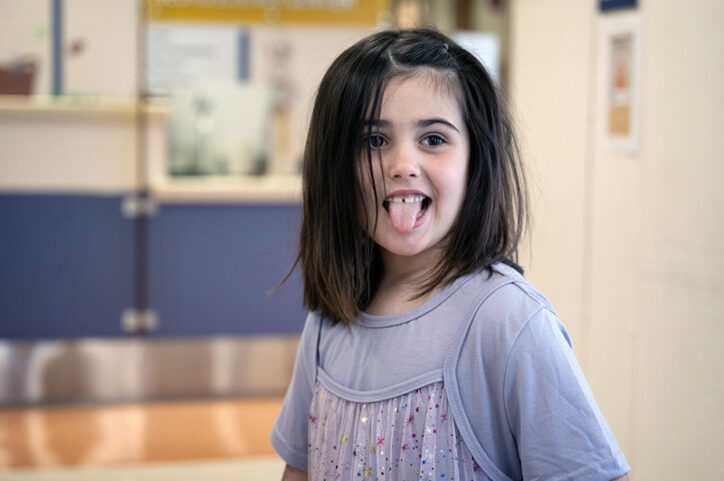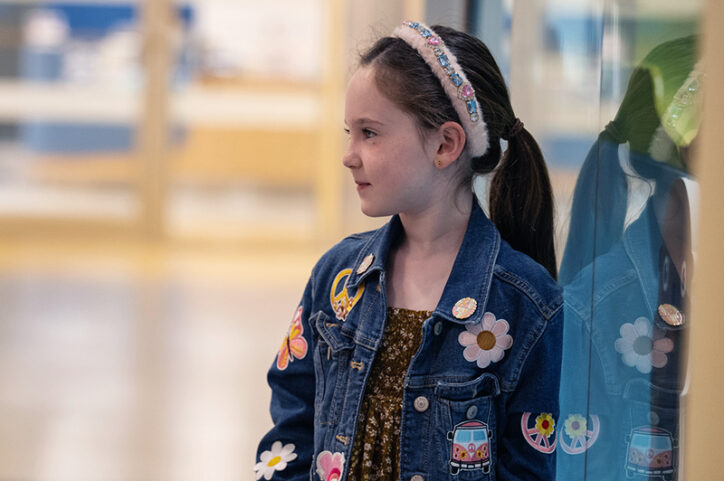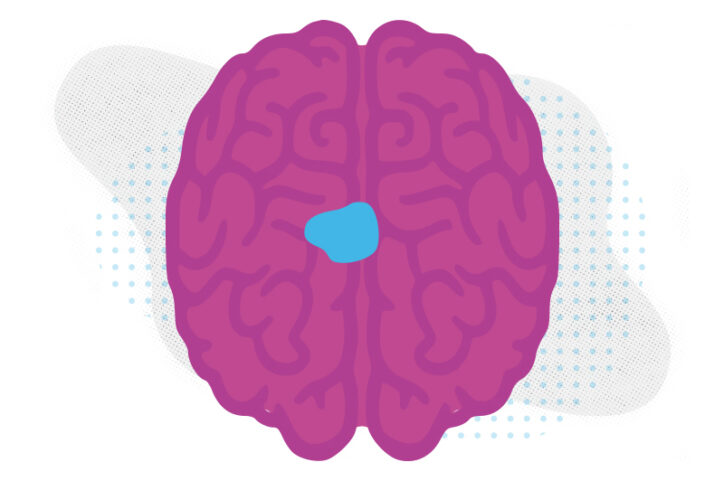Archive for Jessica Cerretani
An unbreakable bond: Brothers turn medical complexities into superpowers
“Look! Is that one JetBlue? I think that one’s Delta!” Running through the grass, climbing on the jungle gym, and watching planes take off and land at nearby Logan Airport: Castle Island in South Boston is Patrick and Teddy’s happy place. The brothers, ages 4 and 3 respectively, are almost as obsessed with airplanes as ... Read More about An unbreakable bond: Brothers turn medical complexities into superpowers
Parsing the promise of inosine for neurogenic bladder
Spinal cord damage — whether from traumatic injury or conditions such as spina bifida — can have a profound impact on bladder function. This can result in neurogenic bladder, a problem in which damage to the nerves involved in urination leads to a loss of bladder control. Neurogenic bladder is currently managed with medication, Botox ... Read More about Parsing the promise of inosine for neurogenic bladder
Tagged: research, spina bifida, spinal cord injury, urology
“Princess June” reigns supreme over Rasmussen syndrome
What do you call a “girly” 5-year-old who adores dolls and frilly nightgowns? If you’re one of June Pelletier’s nurses at Boston Children’s Hospital, the answer is “Princess June,” of course. While Her Highness would much prefer to reign over her parents and three siblings at home in Connecticut, she’s no stranger to the hospital. ... Read More about “Princess June” reigns supreme over Rasmussen syndrome
Tagged: epilepsy, neuroimmunology, neuroinflammation, seizures
Navigating school with a neuroimmune condition
Fifteen-year-old Sarah had been challenging her dad to card games all week — and on Saturday, she finally beat him. It might seem like just good-natured competition to most people. But for Sarah, it was a much greater accomplishment: The teenager was coping with the lasting cognitive effects of autoimmune encephalitis and had struggled with ... Read More about Navigating school with a neuroimmune condition
Five things to know before getting an online second opinion for your child
Whether you want to confirm your child’s diagnosis or treatment plan, another set of expert eyes can give you confidence that they’re receiving the best care. At Boston Children’s Hospital, the process is simple: Although in-person second opinions are also an option, you can request an online second opinion from the comfort of your home ... Read More about Five things to know before getting an online second opinion for your child
Tagged: digital health, second opinion
No limitations: How Flora found answers for MOG antibody disease
Flora Ringler’s fifth birthday didn’t turn out as she had hoped. She and her family were vacationing in New Hampshire last year when she started feeling tired. But she wasn’t just worn out from celebrating: She also developed a bad headache and started throwing up. Concerned, her mom, Maureen, contacted a pediatrician, who thought she ... Read More about No limitations: How Flora found answers for MOG antibody disease
Using her voice: After tracheomalacia treatment, Claire keeps her eye on the ball
Claire Kantany is only 10, but she knows what she wants to do when she grows up — in fact, she’s already doing it. Combining an interest in acting with her family’s love of football, she has her mind set on a career in sportscasting. Not only is she reporting on local games from the sidelines, ... Read More about Using her voice: After tracheomalacia treatment, Claire keeps her eye on the ball
Tagged: surgery, tracheomalacia
Pediatric high-grade gliomas: Research reveals effective targeting with avapritinib
Pediatric high-grade gliomas, particularly H3K27M diffuse midline gliomas (DMG), are aggressive malignant brain tumors with a poor prognosis. Previous research suggests that platelet-derived growth factor receptor alpha (PDGFRA) appears to play a multifaceted role in the pathogenesis of both adult and pediatric high-grade gliomas. Not only are genetic alterations of PDGFRA common in patients with ... Read More about Pediatric high-grade gliomas: Research reveals effective targeting with avapritinib
Tagged: brain tumor, cancer, glioma, research
‘They never stopped trying to figure out what was happening’: RyennAnne’s encephalitis journey
When 5-year-old RyennAnne Hurst developed a bad sore throat last summer, her doctor thought she might have strep and prescribed her antibiotics. But two weeks later, she wasn’t feeling any better. In fact, she was lethargic and her head hurt. “She told us it felt like something was smashing into the right side of her ... Read More about ‘They never stopped trying to figure out what was happening’: RyennAnne’s encephalitis journey
Crossing the ocean: Kathryn learns how to manage chronic pain
When Kathryn Chechile, 11, “graduated” from Boston Children’s Pediatric Pain and Rehabilitation Center (PPRC) last year, she painted a tile to hang on the wall of the Center’s space. It’s a fun ritual for patients who complete the intensive day program aimed at helping kids manage chronic pain. Kathryn’s design features a girl looking out ... Read More about Crossing the ocean: Kathryn learns how to manage chronic pain
Tagged: pain











